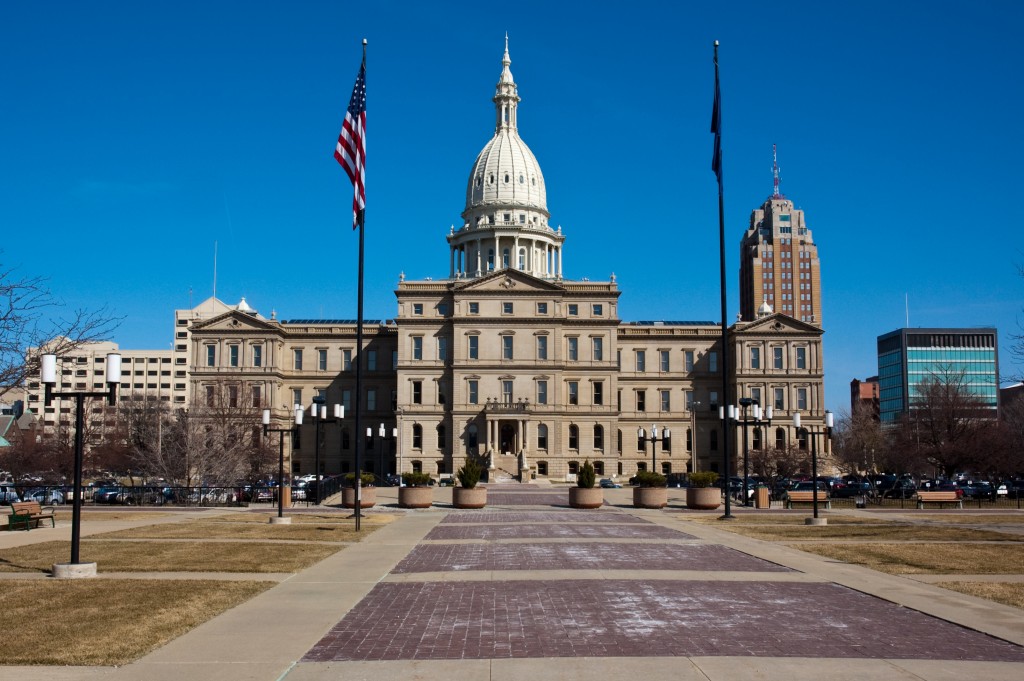
Adoption agency religious freedom bills
(by Chelsea Langston)
In March 2015, the Michigan House of Representatives passed bills designed to preserve the freedom of faith-based adoption agencies to follow their religious convictions about families and children when deciding where to place children needing a new home. The state Senate must also act, and then Governor Rick Snyder will decide whether or not to sign the bills into law.
However, according to the Detroit Free Press, the governor believes that “the adoption bills need some more review if they pass through the full Legislature.” But getting a fair review may be difficult, given the public backlash to the Indiana RFRA law and the mistaken view that religious protection laws give faith-based organizations, businesses, and individuals a “license to discriminate.” In fact, a recent Equality Michigan website story was headlined, “Michigan Senate Committee to Consider License to Discriminate in Adoption Bills.”
On April 9,2015, the Florida House of Representatives passed a bill to provide a “conscience clause” for child placement agencies to opt out of providing services or placing children with families if doing so would “violate the agency’s moral or religious convictions or policies.”
However, enactment of the bill into law is uncertain because a bill with analogous language was rejected by the Florida Senate a day before. In favor of the bill, Republican Rep. Scott Plakon told the Tampa Bay Times: “You may disagree with [the religious agencies’] beliefs. You may even think that they’re crazy, but these are their closely held beliefs.”
The point that the Senator is making is a valid one. Regardless of whether we agree with the religious tenets of a child welfare agency, an institution can no sooner separate itself from those core values it believes are aligned with God’s word. And it is important to keep in mind that nontraditional families, including potential single parents, non-married heterosexual couples, and same-sex couples, are not prevented from adopting or fostering a child through a secular organization who may even specialize in placing children in these environments.
In Texas, on April 15, 2015, Texas House Rep. Scott Sanford (R-McKinney) defended a bill that would allow faith-based child placement agencies in Texas to continue to place children in a way that did not violate their religious beliefs. Sanford stated: “Faith-based organizations have played a vital role in serving our nation’s orphans and needy children since America’s founding, and this legislation protects their operations.” Sanford also noted that if these faith-based agencies are not protected and cease to operate, more demand is placed on government in it role of providing for and protecting children without homes.
The Texas bill, currently called HOME (“Hope for Orphans and Minors Expansion Act”) would ban the Texas government from taking “adverse action” against child placement organizations that receive government money and operate based on “sincerely held religious beliefs.” The HOME Act would also allow faith-based agencies receiving taxpayer funds to continue to provide education to children reflecting the religious beliefs of the agency, and to deny children access to abortions or contraceptives. Religious child welfare providers, currently making up the majority of child placement organizations in the state, are an indispensable partner for the Texas state government.
To some, bills such as these are simply outdated efforts to protect bigotry and to favor religious agencies. But is that a fair and accurate evaluation? Note that religious adoption and foster-care nonprofits are just one type of institution playing a role in a complex system designed to support families of all types and provide the best options for diverse children.
Faith-based child placement agencies, whose very religious convictions propel them to “look after the widows and orphans in their distress” (James 1:27), are also called by those convictions to evaluate families and place children following certain principles and values. When these faith-based agencies follow their convictions, they do not in any way undermine the ability of secular organizations to follow their own convictions as they offer their own services. Nor does the conviction of some faith-based agencies that they should work only with mother-father families make it impossible for other faith-based agencies to reach out to and serve same-sex couples.
The goal of these bills is not to drive other agencies out of business nor to impose one model of adoption on everyone, but simply to maintain space for a diversity of views, including for faith-based agencies to remain true to their convictions, even when those convictions diverge from the popular view that all family types are essentially equivalent. Sometimes called “principled pluralism,” this is the idea that our government should support diverse organizational practices as part of its obligation to respect the diverse religious convictions of the citizens. The Psalmist calls out to God to “do justice to the fatherless and the oppressed” (10:18). Government policy and private agencies are means to that end-and to accomplish it in our society with its diverse views requires bills like those being considered in Michigan, Florida, and Texas.
